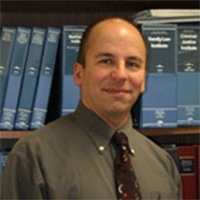Bock Estate Lawyer, Minnesota
Blake D. Lubinus
✓ VERIFIED *Status is reviewed annually. For latest information visit hereCriminal, Divorce & Family Law, Business, Estate, Litigation
Born in South Dakota, raised in Iowa, and now practicing law in Minnesota, Blake is the very definition of a Midwestern lawyer. He attended the Univer... (more)
Edward R Shaw
✓ VERIFIED *Status is reviewed annually. For latest information visit hereDivorce & Family Law, Criminal, Real Estate, Estate, Bankruptcy & Debt
The Law Office of Attorney Edward R. Shaw is located in Brainerd, Minnesota and has been serving the Brainerd Lakes Area and surrounding counties with... (more)
Allen J. Peterson
✓ VERIFIED *Status is reviewed annually. For latest information visit hereCriminal, Divorce & Family Law, Traffic, Estate Planning, Wills
Minnesota Native Allen J. Peterson is a 2017 graduate of the University of St. Thomas – School of Law. Allen was born September 24, 1991 in Dakota C... (more)
D. Scott Berry
Construction, Estate Planning, Divorce, Collection
Status: In Good Standing *Status is reviewed annually. For latest information visit here
Kevin A Hofstad
Real Estate, Wills & Probate, Trusts, Corporate
Status: In Good Standing *Status is reviewed annually. For latest information visit here Licensed: 45 Years
Melissa Ann Bieber
Divorce & Family Law, Estate, Real Estate, Equine
Status: In Good Standing *Status is reviewed annually. For latest information visit here Licensed: 30 Years
James William Hess
Business, Real Estate, Wills & Probate, Estate
Status: In Good Standing *Status is reviewed annually. For latest information visit here
Katie Marie Jendro
Estate, Divorce & Family Law, Banking & Finance, Bankruptcy & Debt, Car Accident
Status: In Good Standing *Status is reviewed annually. For latest information visit here Licensed: 19 Years
John L. Greer
Construction, Estate Planning, Employment, Corporate, Juvenile Law
Status: In Good Standing *Status is reviewed annually. For latest information visit here Licensed: 35 Years
Chad Michael Roggeman
Wills, Estate Administration, Trusts, Elder Law
Status: In Good Standing *Status is reviewed annually. For latest information visit here Licensed: 27 Years



